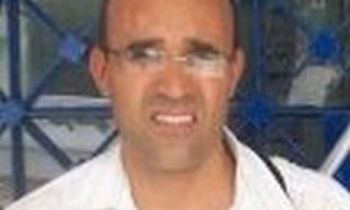NEW DELHI, DEC 29: The year 2005 will be remembered as one in which India’s Rs 20,000 crore media and entertainment sector saw vibrant activity in regulation and policy implementation.
Expansion of private FM radio in 91 cities led the list of major steps taken by the ministry of information and broadcasting. Cabinet’s approval of the downlinking and uplinking guidelines came amidst voices of protest from parties directly affected, especially the contentious issue of mandatory sharing of cricket tournaments with the public broadcaster, Doordarshan. Some of the major events included:
FM radio: Marred by escalating licence-fee regime, the 21 private FM radio stations were on the verge of going out of business until the government announced a shift to a four per cent revenue-sharing’ formula. This, in turn, opened the doors for expansion of private FM channels in 91 cities for 338 frequencies, the financial bids for which will be opened in January. The government also approved the inclusion of FIIs, OCBs and PIOs within the 20% foreign direct investment cap in private radio.
Expanding the coverage of FM radio in the country is being undertaken as per the tenth plan document, which directs the government to increase FM radio area coverage to over 50% from the current 31%.
Facsimile newspaper editions: Detailed guidelines on the publication of fax editions of foreign newspapers and magazines were formulated. Now, with prior permission from the ministry, foreign newspapers will be allowed to publish a fax edition in India, a sector which is beginning to attract major foreign publications like The International Herald Tribune and The Independent from UK.
Downlinking & uplinking guidelines: Still a matter of debate, the downlinking and uplinking guidelines, after it was kept pending with the Cabinet, the group of ministers and the I&B ministry for over a year, saw the light of the day.
While the guidelines deliberated into specific policies for Direct-to-Home platform, approval to foreign news channels, setting up of Indian company of foreign channels and other related issues, the mandatory sharing of feed by private sports channels having rights to sporting events like Cricket has become the cause of tension between the rights holder, Prasar Bharti and the ministry.
Community Radio: Staying with policy decisions in radio, the issue of awarding licenses for running community radio stations by NGOs and social organisations were referred to a group of ministers. Currently, only a handful of educational institutes have been awarded licenses for running community radio stations. The government has also suggested to the GoM to allow local advertisement on community radio for revenues.
Prasar Bharti: The public broadcaster was involved in discussions and deliberations because of mandatory sharing of content clause in the downlinking guidelines. A committee was also set up, earlier this year, to look into the financial restructuring of Prasar Bharti owning to an annual loss of Rs 5500 crore. The committee comprising the ministry officials and planning commission member will formulate 'terms of reference' on the matter, which will be later looked into by a group of ministers. Issue of appointments and promotions of DD and AIR employees is also a matter under review by the committee. At stake, is the future of over 40,000 employees.
DTH market: The direct-to-home delivery platform is gearing for action with T-Sky, a Tata: Star TV joint venture and Blue magic from ADA enterprises likely to take-off in the first quarter of 2006. Currently the only private DTH operator is Zee group's Dish TV, which is adding over 3,000 subscribers a day to capitalise on its first-mover advantage. DD Direct, from Prasar Bharti is a free-to-air DTH platform involved in the integration of remote areas not covered by DD's reach.
IPOs of Media companies: 2005 saw several media companies going public. While Hindustan Times went public in August, it also entered the Mumbai territory, a stronghold of the Times of India group. Other companies planning to go public in early 2006 include Radio Mirchi, Dainik Jagran, and SUN TV network. Film exhibitors PVR cinema also went public in December, the proceeds of the IPO will be used in expansion plans of the company.
ADAE group buys stake in Adlabs: Anil Dhirubhai Ambani (ADA) Enterprises made its first predatory move in July this year with Reliance Land Pvt Ltd, part of Reliance Capital, picking up 51% stake in Adlabs Films Ltd for over Rs 350 crores. Adlabs is also scouting for foreign investors to start operations outside India.









